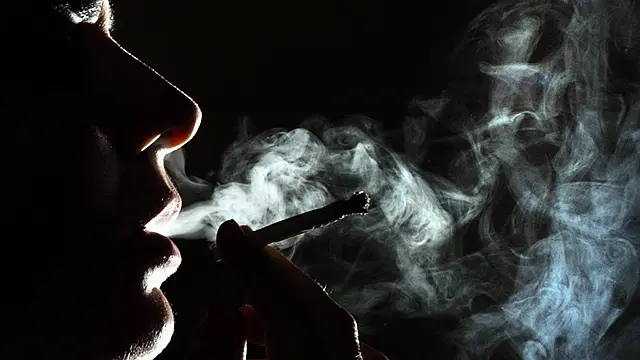Irish teenagers whose friends use cannabis are 10 times more likely to consume the drug themselves, according to the findings of new research.
The study by researchers found that 7.3 per cent of students aged 15-16 had used cannabis within the previous 30 days with no significant difference in use of the drug between males and females.
It also highlighted how teenagers who felt it was necessary to use cannabis to fit in with their friends were almost twice as likely to use the drug compared to those who did not feel peer pressure to use cannabis.
Teenagers who believed their parents would be ambivalent towards their use of cannabis were also almost four times more likely to be current users of the drug than those students who thought their parents were strongly against cannabis use.
The findings are based on the responses by over 4,400 students in fourth and fifth year to a questionnaire issued as part of the Planet Youth survey carried out in late 2021.
The respondents were based across 40 schools in north Dublin, Cavan and Monaghan.
The study highlighted how current cannabis users among such an age group were significantly more likely to also be consuming alcohol, smoking or vaping.
It also reveals that low parental supervision was significantly associated with higher odds of current cannabis use.
The authors of the study, whose findings are published in the Irish Journal of Psychological Medicine, said its rationale was to examine individual, familial, peer, school and community factors associated with cannabis use by adolescents in Ireland in order to provide measures for prevention and early intervention.
They claimed several of the risk factors identified by the research have the potential to be modified through drug prevention strategies.
The researchers noted that earlier studies had found that long-term use of cannabis has the potential to lead to addiction with one in three regular adolescent users becoming addicted to the drug, while also having the potential to exacerbate mental health issues such as psychosis.
The study observed that cannabis-related psychiatric admissions for people aged 15-34 in the Republic rose by 140 per cent between 2011 and 2017 and have remained at the same elevated level ever since.
Despite the evidence of increased health risks associated with cannabis use, the study said adolescents continue to use cannabis for a number of various factors including boredom relief, appetite increase, sleep improvements and increased social opportunities.
Other factors can include low self-esteem and insecurity or family problems.
Asked to assess their own mental health, almost three-quarters of the teenagers (72.4 per cent) who do not use cannabis said it was good or OK compared to 54.6 per cent among cannabis users.
In contrast, 45.0 per cent of cannabis users assessed their mental health as bad or very bad compared to 27.1 per cent of those who do not use the drug.
Similarly, only 16.6 per cent of cannabis users perceived the drug to be harmful, while 67.2 per cent of non-users surveyed believed it could have a negative impact on their health.
Among cannabis users, 90.4 per cent reported that their friends also use the drug compared to 29.3 per cent of students who do not use it.
One of the report’s main authors, Teresa O’Dowd, said they believed it was the first study in an Irish setting which found no significant difference in cannabis use between males and females.
Dr O’Dowd, a specialist in public health medicine with HSE North West, said the lack of association between gender and cannabis use was a notable finding as historically male gender had been noted as a risk factor for use of the drug.
She said the finding that the odds of cannabis use were higher for those who also consume alcohol, smoke and use e-cigarettes was in keeping with other research.
“The fact that adolescents are likely to engage in polysubstance use is significant and needs to be factored into any interventions targeting cannabis prevention among adolescents in Ireland,” said Dr O’Dowd.
The study also claimed there has been a cultural shift both nationally and internationally over the past decade towards legalising cannabis.
Dr O’Dowd said it had led to an attitude among many adolescents and adults that cannabis is a relatively harmless drug.
“This shift in perception regarding cannabis-related harm may impact Irish adolescents’ decision to use cannabis, as suggested by our findings,” she added.
The authors of the study said its findings had demonstrated the importance of parental attitudes to cannabis and claimed many factors including parental supervision and perception that parents are against cannabis use were “modifiable.”
They called for the public health community and policymakers to act to ensure greater awareness of cannabis harms among both teenagers and their parents.
“A tailored public health messaging campaign addressing the known harms and complications of cannabis use in young people, is urgently required,” they added.







